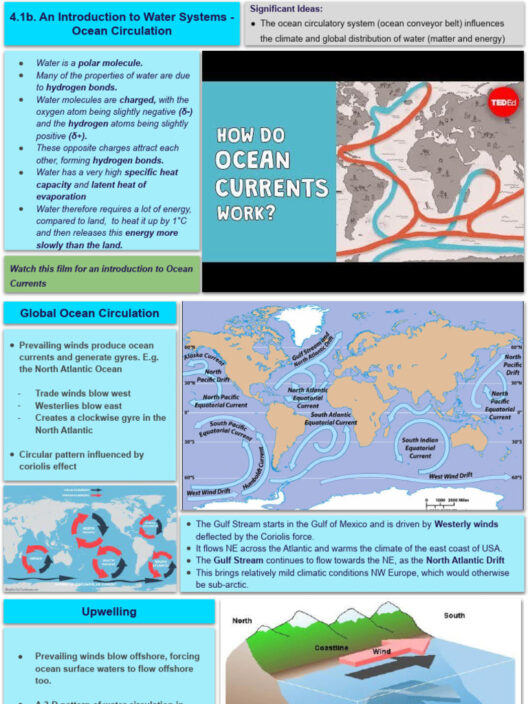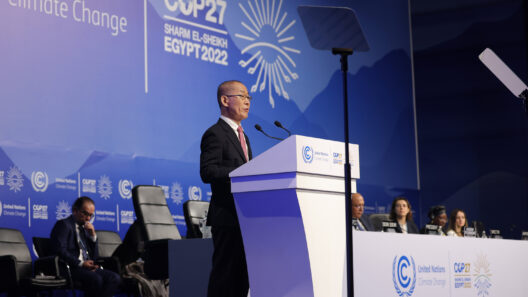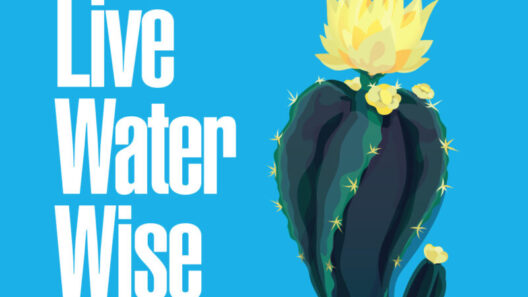Global warming is an omnipresent specter, haunting our planet and magnifying the vulnerabilities of those least equipped to withstand its ravages. This unforeseen adversary does not strike indiscriminately; rather, it exerts its wrath most acutely on impoverished communities scattered across the globe. These individuals, already ensnared in the quagmire of economic despair, are often situated in regions where climate impacts are not just a distant threat but a daily reality. The irony is profound: while the affluent, with their resources, can erect barriers against the storm, the poorest are left to bear the brunt of an existential crisis for which they have contributed the least.
The most salient metaphor that encapsulates this predicament is that of a fragile flower blooming in a parched desert. While the flower’s roots struggle to draw sustenance from the unforgiving soil, it lacks the resilience to thrive in a climate that increasingly resembles a furnace. This imagery serves as a poignant reminder that the intersection of climate change and socioeconomic status creates a chasm where the vulnerable writhe in agony, continuously battling not only environmental degradation but also systemic inequalities.
As temperatures rise—climbing inexorably like the sun’s inexorable ascent—the repercussions for food security become increasingly dire. Crop yields fluctuate, and entire harvests can fail as droughts and erratic weather patterns disrupt traditional farming cycles. For subsistence farmers, who rely on predictable weather to cultivate their crops, this unpredictability is a cruel sentence. They are left to scavenge for sustenance as their land, once bountiful, transforms into a dry expanse devoid of life. These changes are not merely inconveniences; they threaten the very fabric of communities. Where once there was abundance, now hunger grips the throat like a vice, forcing families into dire choices between survival and dignity.
In the global economic landscape, the ramifications of climate injustice extend beyond agriculture. The most vulnerable communities often reside in precarious housing—informal settlements that lack adequate infrastructure to withstand natural disasters. When hurricanes, floods, and wildfires occur, it is these marginalized groups who suffer the greatest losses. Their homes, constructed from flimsy materials, are ill-equipped to weather such storms, rendering their lives a perpetual cycle of rebuilding and despair. As property and possessions are washed away or consumed by flames, the psychological toll is immeasurable. The mental health crisis that follows is insidious, as the specter of loss looms large over communities already grappling with the weight of poverty.
The socioeconomic impacts of climate change are inexorable, likening the plight of these communities to that of a ship caught in a maelstrom—adrift, vulnerable, and at the mercy of forces beyond their control. Job opportunities diminish as industries reliant on stable climates falter. Fishing communities see their catches dwindle due to ocean acidification and overfishing. As livelihoods evaporate like mist in the morning sun, individuals are forced to seek out alternative means of survival, often migrating to urban centers in search of tenuous employment opportunities. This rural exodus further exacerbates urban poverty, creating a vicious feedback loop of suffering.
Moreover, undercurrent tensions often surface, as competition for dwindling resources becomes fierce. Communities that once coexisted in relative harmony can become embroiled in conflict over access to water, land, or food, further destabilizing regions already on the edge. This is not merely a localized phenomenon; it is a harbinger of geopolitical instability that can reverberate across nations. Climate change, thus, morphs into a catalyst for social unrest—a grim specter that threatens the fabric of civilization itself.
Mitigating these impacts requires an urgent and concerted international effort. The voiceless communities at the frontlines of this crisis must not only be heard but actively involved in crafting solutions. Policymakers must prioritize investments in sustainable agricultural practices, ensuring that the most vulnerable can adapt to the changing climate. This involves providing resources, training, and technology to enhance resilience, allowing communities to cultivate their land sustainably despite shifting climatic conditions.
Furthermore, infrastructure development in vulnerable areas is paramount. Investing in robust, climate-resilient housing will safeguard communities against the ravages of extreme weather, providing a buffer against the very real risks they face. Education plays a crucial role in equipping individuals with the knowledge and skills necessary to navigate a changing world. Emphasizing climate literacy and adaptation strategies can empower communities to make informed decisions, ensuring that they are not merely passive recipients of aid but active participants in their own futures.
As this multifaceted crisis unfolds, an understanding of its interconnectedness is imperative. Climate change is not a solitary enemy; it intertwines with issues of equity, justice, and human rights. The struggle against global warming must include a commitment to addressing the systemic inequalities that perpetuate the suffering of vulnerable communities. Only by weaving together the strands of environmental stewardship and social justice can we hope to cultivate a world where all individuals, regardless of their geography or economic status, can flourish amidst the challenges that lie ahead.
In this endeavor, the clarion call for action cannot be overstated. The time for complacency has passed; the clock is ticking, and the consequences of inaction loom over us like a dark cloud. To ignore the plight of the poorest among us is to forsake our collective humanity. The battle against global warming is not merely a scientific or political challenge; it is a moral imperative. In recognizing that the poorest pay the price for the excesses of others, our commitment to equity and justice must guide our path forward. Only together can we forge a resilient future that withstands the test of time and fosters a world where the vulnerable are no longer punished by the whims of the climate.







